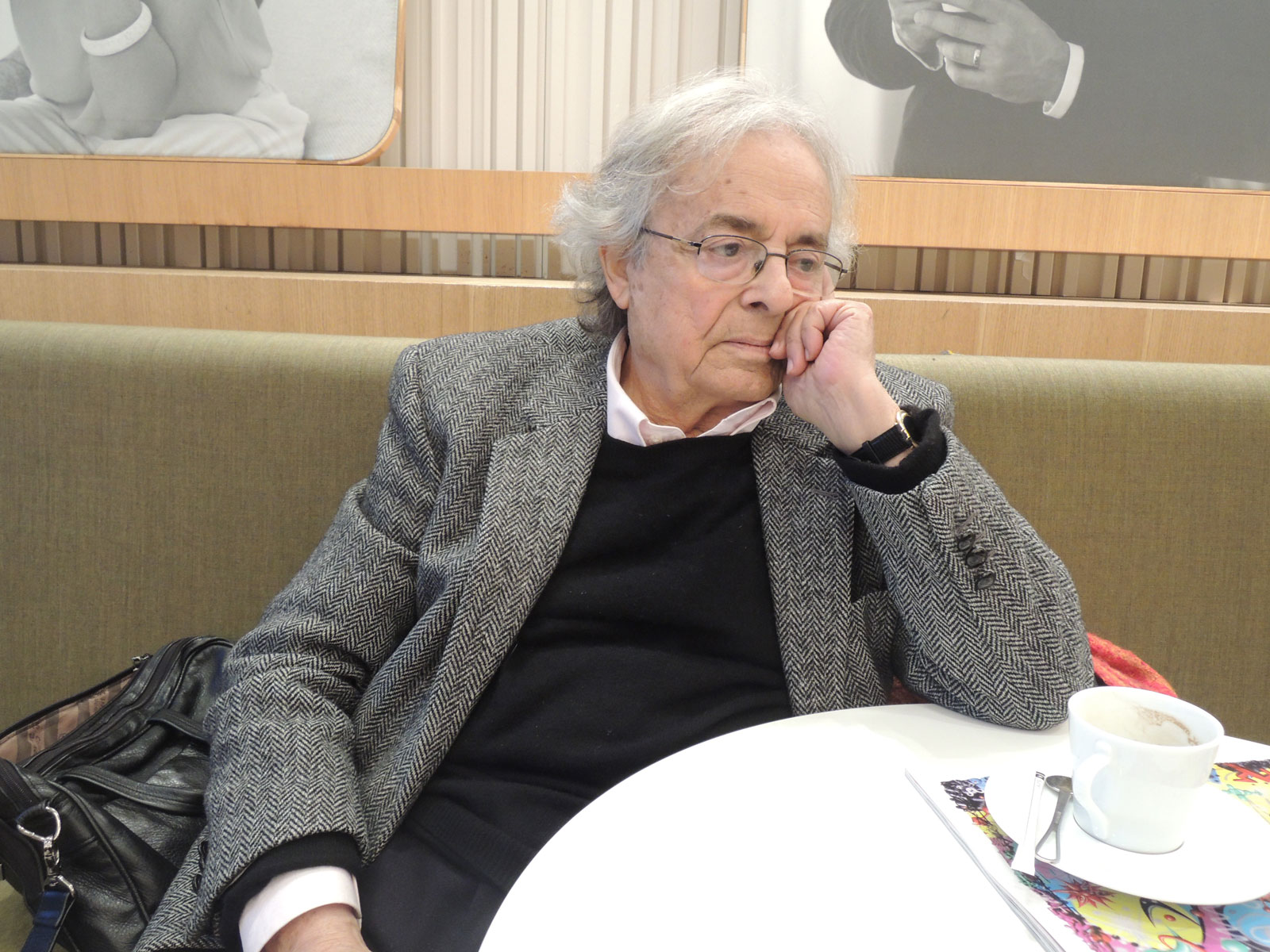by JONATHAN GUYER
 Syrian poet/essayist Ali Ahmad Said Esber, popularly known as Adonis or Adunis, 2016 PHOTO/Jonathan Guyer
Syrian poet/essayist Ali Ahmad Said Esber, popularly known as Adonis or Adunis, 2016 PHOTO/Jonathan Guyer
In the Arab world, they say, everyone is a poet. And everyone knows Adonis, the Paris-based Syrian exile who invented the Arabic prose poem and who has frequently been mentioned as a candidate for the Nobel Prize in Literature.
Since 2011, he has also been a controversial figure in the debate about the war in Syria. As the Syrian uprising began in early 2011, Arab intellectuals awaited Adonis’s comment, not only because of his stature as a poet but also because he is Alawite, the sect to which Syrian President Bashar al-Assad belongs. In June of that year, Adonis wrote an open letter to al-Assad, calling for a democratic transition. Yet the Assad regime had already killed some 1,400 civilians, and many criticized Adonis’s response as too little, too late.
Now eighty-six, Adonis has elaborated his views about the failure of the Arab Spring in a regular column in verse for the Pan-Arab newspaper Al-Hayat, and in a recent book, Violence et Islam. It was released in France in November, the same month as ISIS’s rampage in Paris that killed 130 people.
I met Adonis at a cafe on the Champs-Élysées.
Jonathan Guyer: At the beginning of the Syrian war you wrote a letter to President Bashar al-Assad. What would you say to him now?
Adonis: Nothing has changed. On the contrary, the problems are bigger. How can forty countries ally against ISIS for two years and not be able to do a thing? Nothing will change unless there is a separation between religion and the state. If we do not distinguish between what is religious and what is political, cultural, and social, nothing will change and the decline of the Arabs will worsen. Religion is not the answer to problems anymore. Religion is the cause of problems. That is why it needs to be separated. Every free human believes in what he wants, and we should respect that. But for religion to be the foundation of society? No.
When was the last time you visited Syria?
In 2010.
Before the war. Can you talk about the atmosphere then?
I don’t know—I hear the news, just like you. I know that Syria was destroyed, but for what? What is the project? Look, the revolutionary must protect his country. He fights the regime, but defends institutions. I heard that Aleppo’s markets were totally destroyed. This wealth was like no other, how do they destroy it? The revolutionary does not loot museums. The revolutionary does not kill a human because he is Christian, Alawite, or Druze. The revolutionary does not deport a whole population, like the Yazidis. Is this a revolution? Why does the West support it?
Your views on the Syrian conflict have drawn criticism in the Arab world.
You know, there are many Arabs who are employed by the revolutionaries and they always criticize me. They say that I am not with the revolution—[the revolution] that destroyed the museums.
What is the revolution and who is with it?
Something that cannot be said…A writer can never be on the side of killing. It is not possible, you know. But some people love killing and violence. How can a poet or a painter be on the [same] side as a person with an explosive belt who goes into a school and detonates himself? How? Those are children. How, how do you kill them? It is an unimaginable monstrosity. My brother, if the regime is tyrannical then fight the regime. Do not fight children and schools. Do not destroy the country. Do not kill innocent people. Fight the regime. It is humiliating. To belong to this world is humiliating. I have not seen anything like this in history, to destroy a country entirely—like Yemen—just to put in place an imbecile as president…
The New York Review of Books for more
